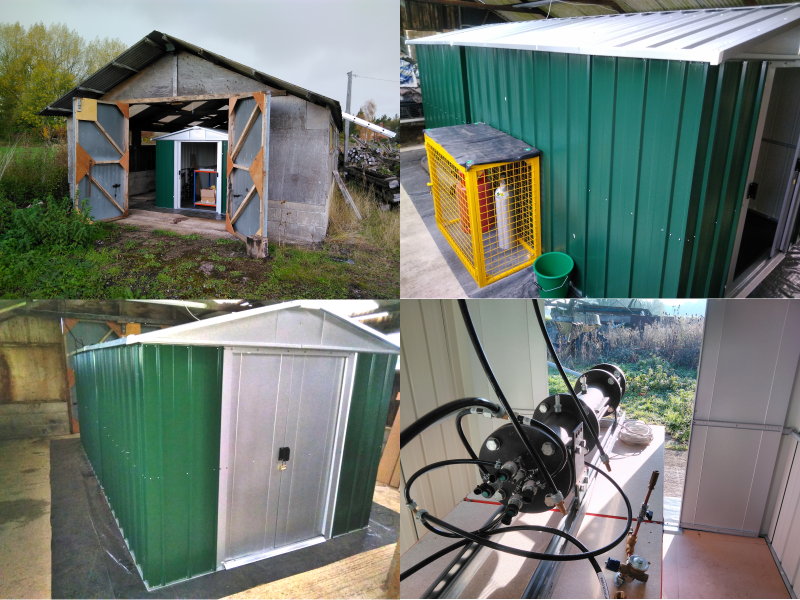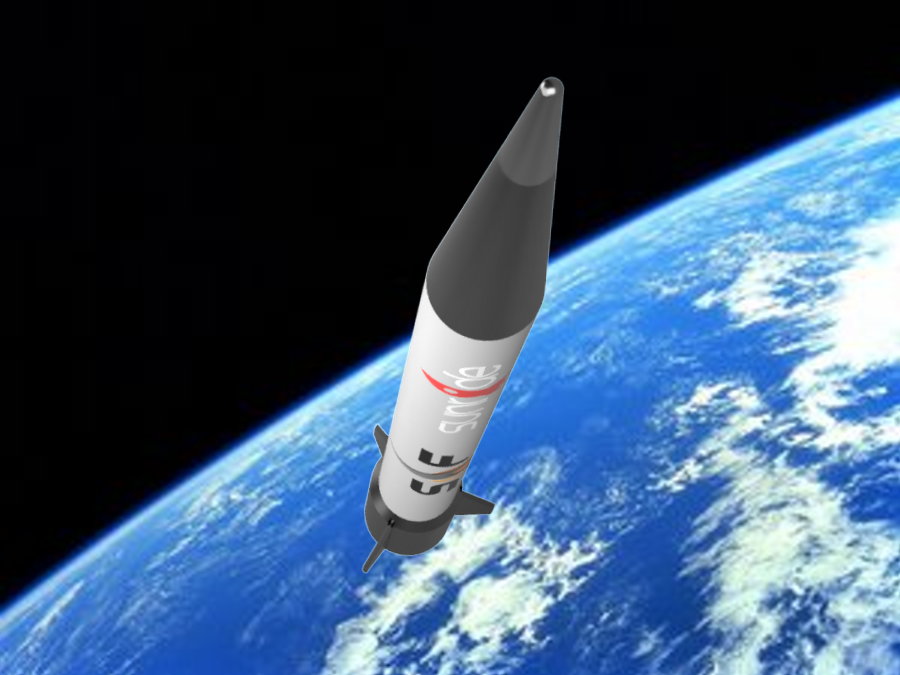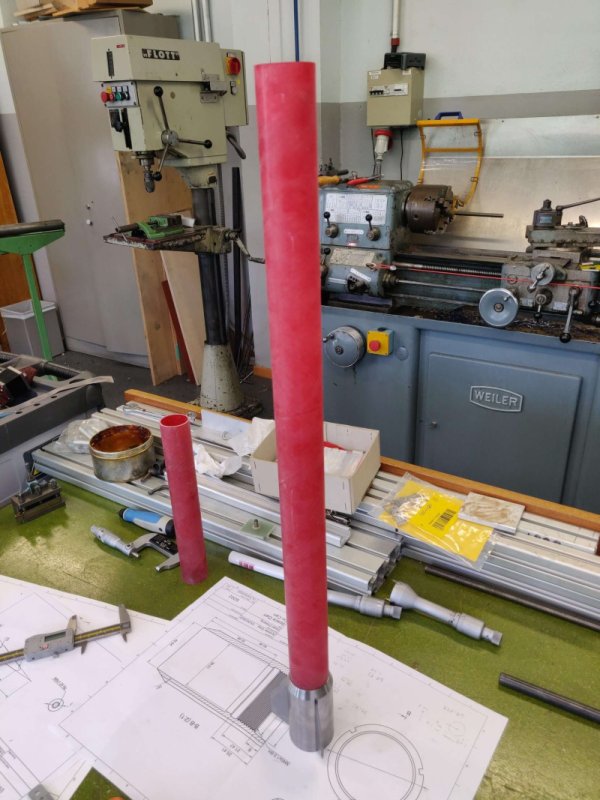
We found a new place to put our PDRE test rig, at last. The fine building, situated in Wiltshire, at top left, is now the home of the Spacefleet pulse detonation rocket engine test rig. Pulse detonation engines are very simple in construction, relatively safe to operate, and hold out the promise of much higher efficiency of conversion of fuel into thrust. We are using two steel garden sheds placed back-to-back to provide a control cabin and test bench are that we can lock up when we are not there. Only the cylinders (propane and nitrous oxide) will be on view.
We started our experiments in Spring 2019, at a different location, but were obliged to move after a few months of operation. It has taken us nearly three years to find an alternative. This isn't the sort of thing you can do in your own back garden, without having fights with the neighbours. A long barrow, or disused WW-2 bunker would have been ideal, but we should be okay at the present site. Just to be sure, we will build a dump chamber/silencer to cut the noise down. We were beginning to obtain more thrust out of the engine when last active. We added a Shchelkin spiral which had the expected effect of improving the detonation charateristics. Since our original experiments we had a new smaller engine built to allow the engine tube to be filled in a shorter time and enable much higher pulse rates without burning through a lot of nitrous oxide. All being well, we should be able to have the engine running once again towards the end of next month.
There will be more updates here, as get nearer to an operational state.

We're thrilled to be collaborating with Project SunrIde on a mission to send a space dart, of SunRide's design and construction, to the edge of space. We have reviived the concept of the "Space dart" first demonstrated in the 1950s, wherebyWe will aim to put the dart up to an apogee comfortably over 100 km. The launch will take place from a Black Sea coastal military range in Romania. Two darts and two boosters will be built and the first will be a test launch to around 50 km, followed by an attempt on the von Kármán line (100 km), later in the year.
Together, by sharing our experience and resources we can all benefit and work towards cheaper and more accessible transit to the high atmosphere and eventually space. Working with engineers in Germany, Romania, Switzerland, France, The UK, The Netherlands and beyond, it is truly a collaboration without borders. With design work and simulations progressing rapidly, over the coming months, manufacture of the dart and its booster will take place in the coming months. Pprototyping and manufacture of avionics is already well underway.
Introducing Space Dart: the high-power rocket to support our mission of reaching the Kármán line. This is a joint venture between Project SunrIde and Spacefleet Ltd that has been developing behind the scenes since July 2021.
We aim to launch two Darts, in eastern Romania, currently planning for April-June of this year.
The Darts will be flying test-benches for SunRide's objectives:
- Validate our new Telemetry and Ground Station that will be used forSunRide's "Karman Alpha" mission
- Test a new recovery system
- Demonstrate an affordable high-altitude vehicle
- Challenge the UK’s current open altitude record
Building upon the lessons learnt from the first launch, Space Dart II will aim to exceed a 100km altitude. If it does, SunRide will become the first European student rocketry team to reach space.
More progress reports to come!
 Space Dart 1 hull attached to tail-fins. Space Dart 1 hull attached to tail-fins. |
The collaboration project with the SunRide student amateur rocketry society at Sheffield University, in the UK, is continuing according to plan. We have now obtained the necessary materials for the testing and construction of four booster, one for static testing, two for the flights, asnd one spare. The first dart's hull is nearly complete (see picture) and the internal components, that is, the avionics for communication, imaging and measurements, are in constuction. A ground station has been completed and initiial range testing carried out. We are expecting to be able to launch Dart 1 in July, at a site in Romania. The plan is that the first dart will attempt an ascent to 50 km. It will be launched at an inland site, and we will attempt to recover it. Ideally, it will fall back within the range boundary, but if not, it should be easy to recover it from the surrounding agricultural land. The second flight will, we hope, take the dart over the Von Karman line (100 km). |

Spacefleet is now partnered with Sunride, a student high-power rocketry society, based at the University of Sheffield. Their ambitious and exciting project to launch their own rocket into sub-orbital space is in progress, and we will help . Their aerospace students can also help us with progressing our EARL, PDRE and Dart projects. In this way the profile of both Sunride and Spacefleet will be raised.
Subcategories
Projects
Spacefleet projects in progress, completed or halted

